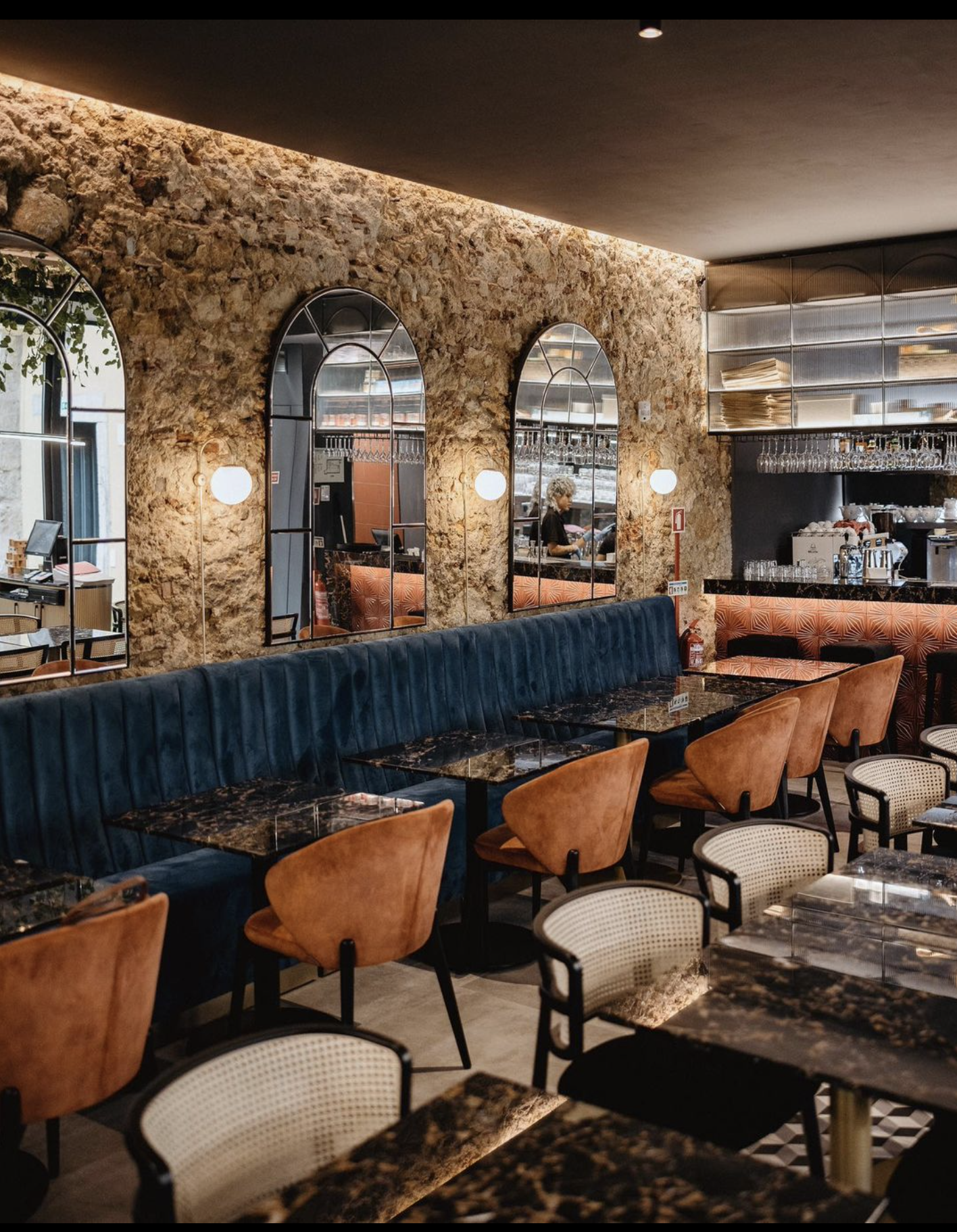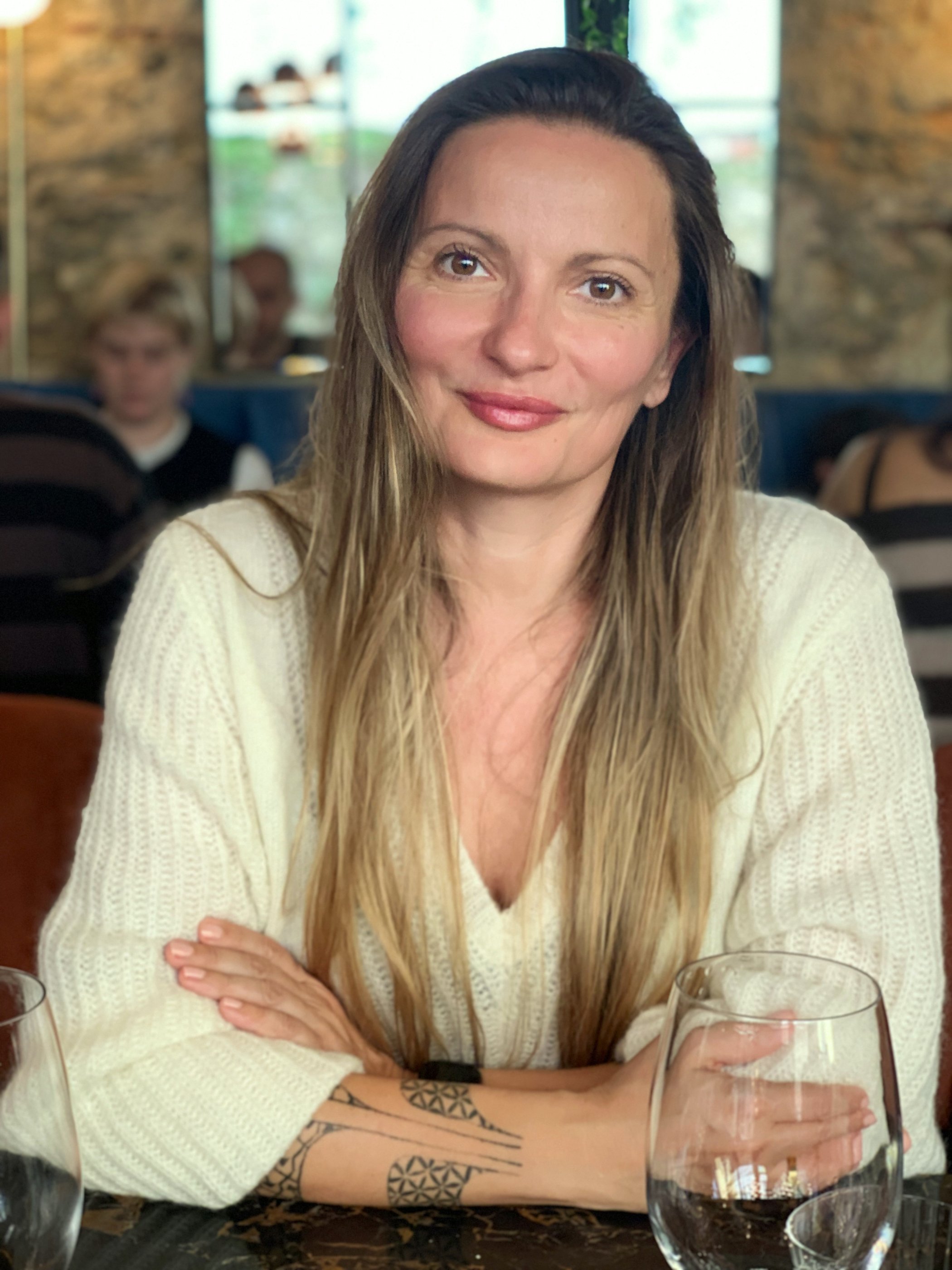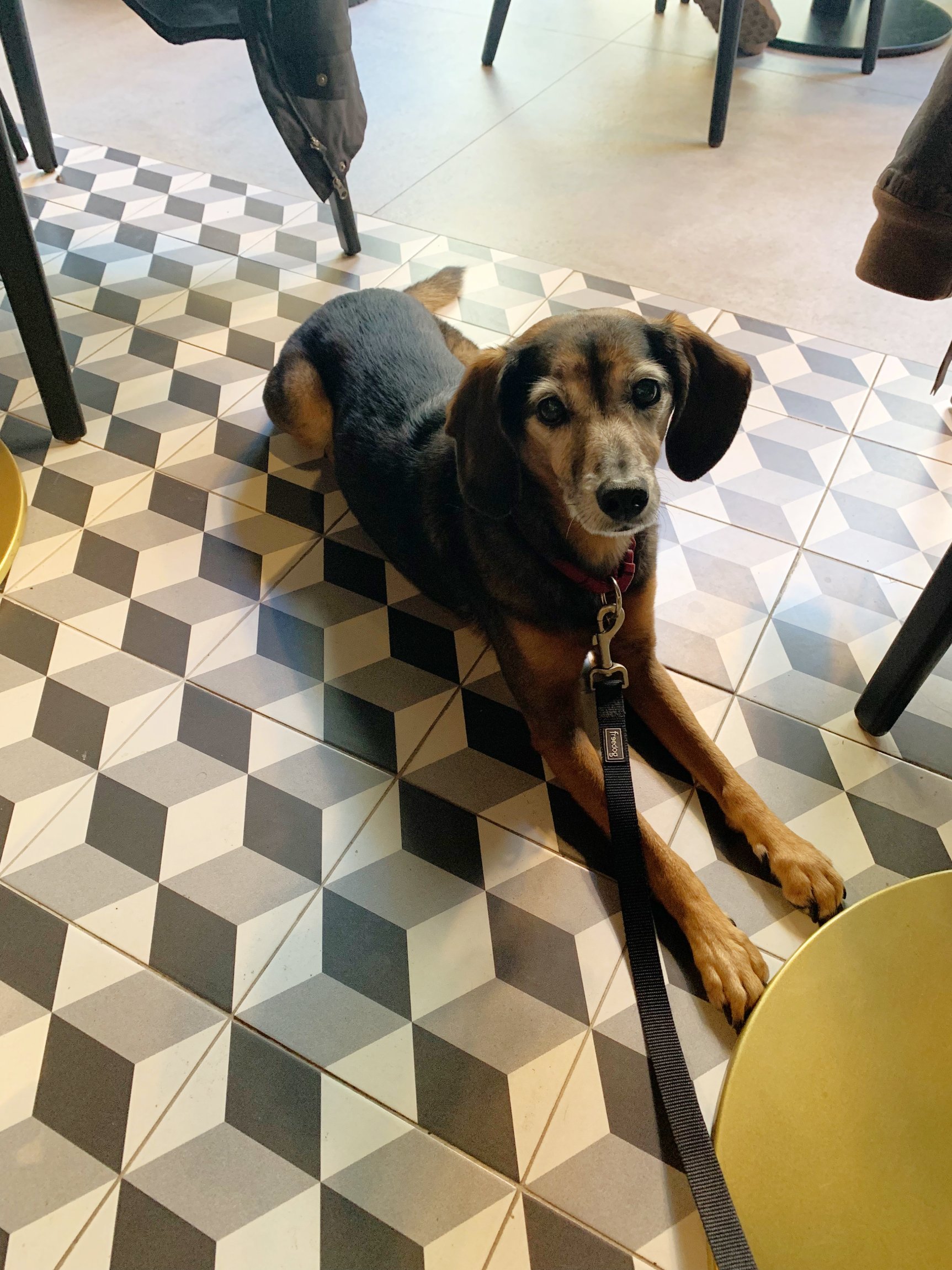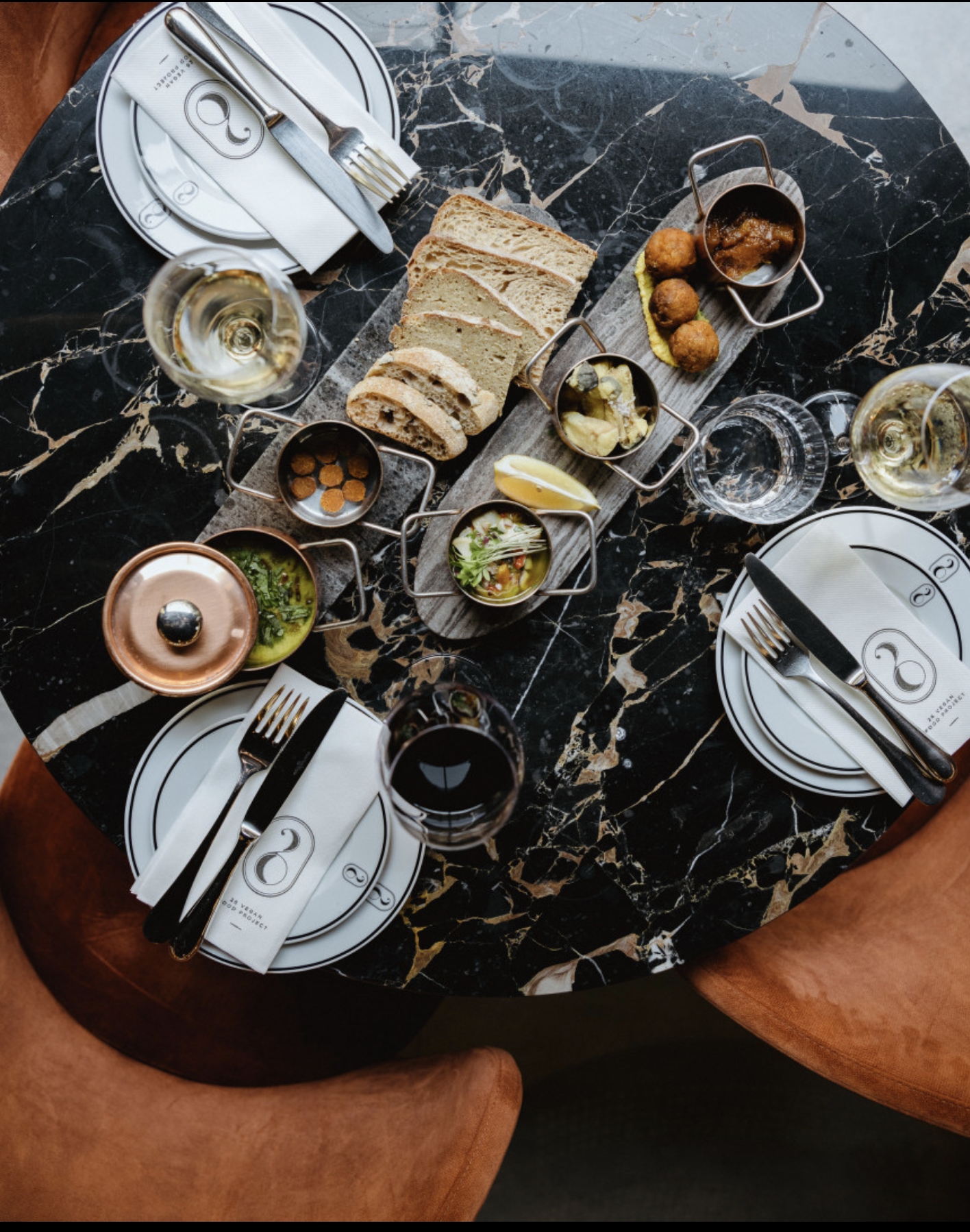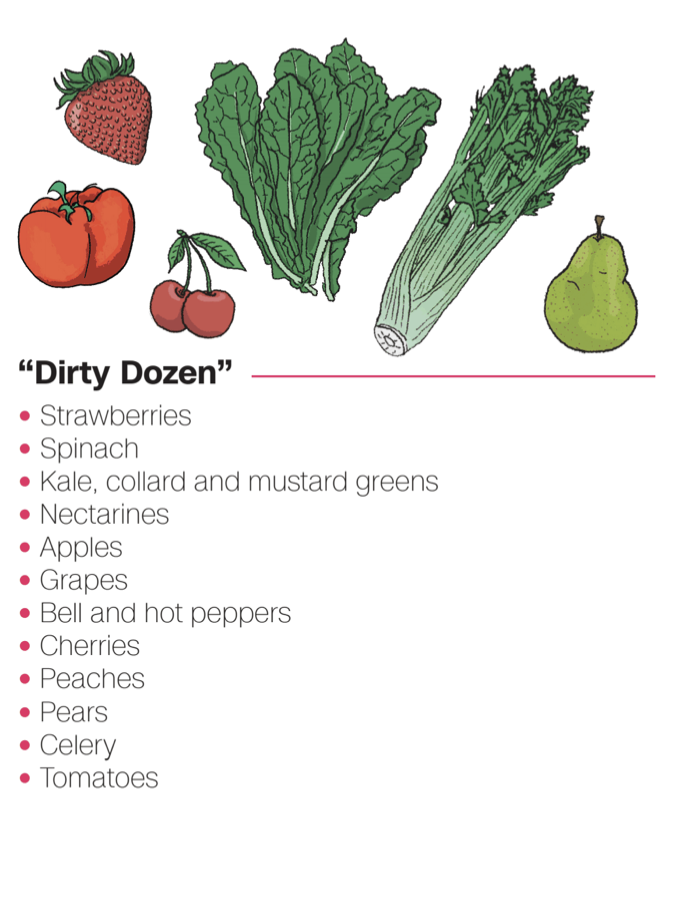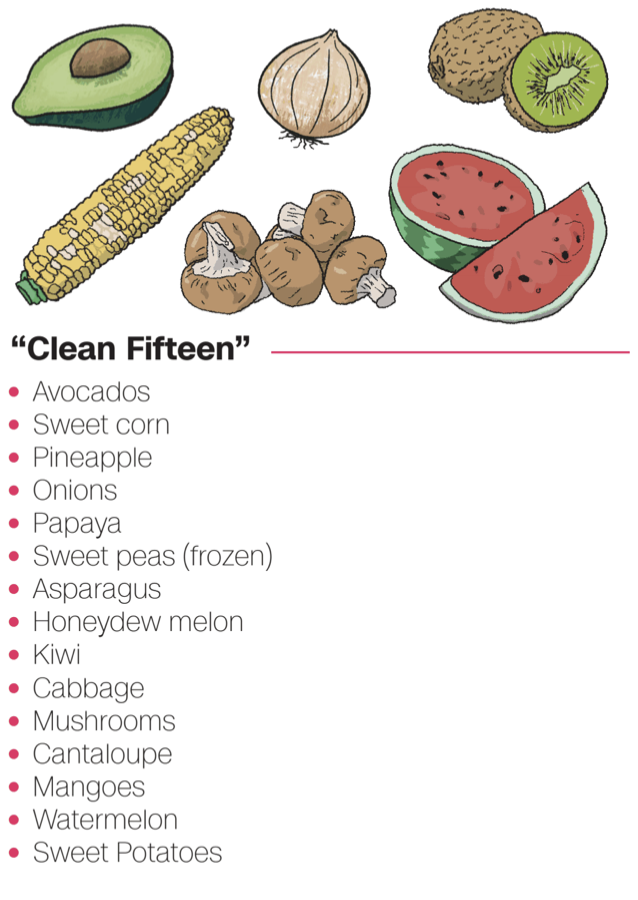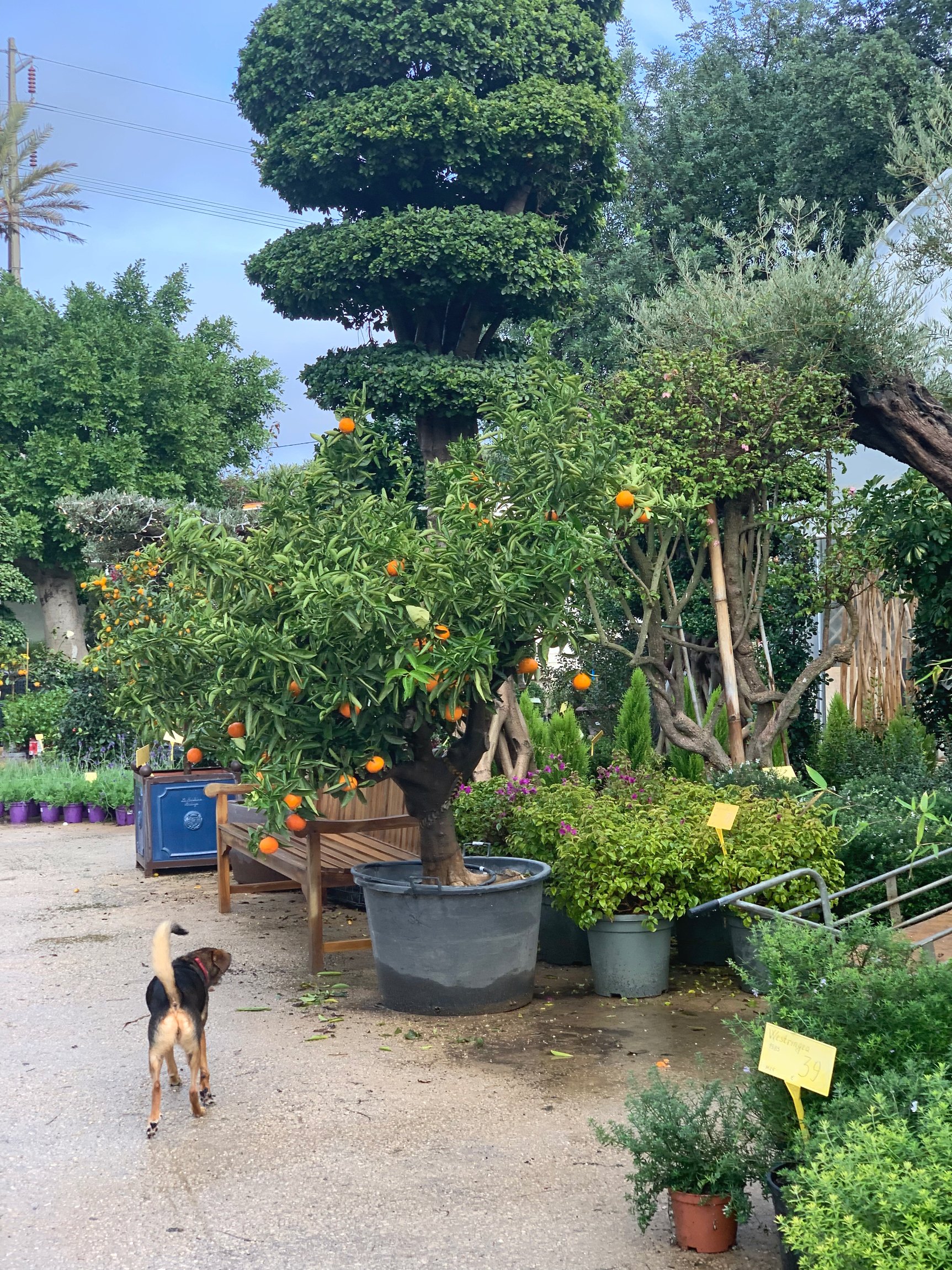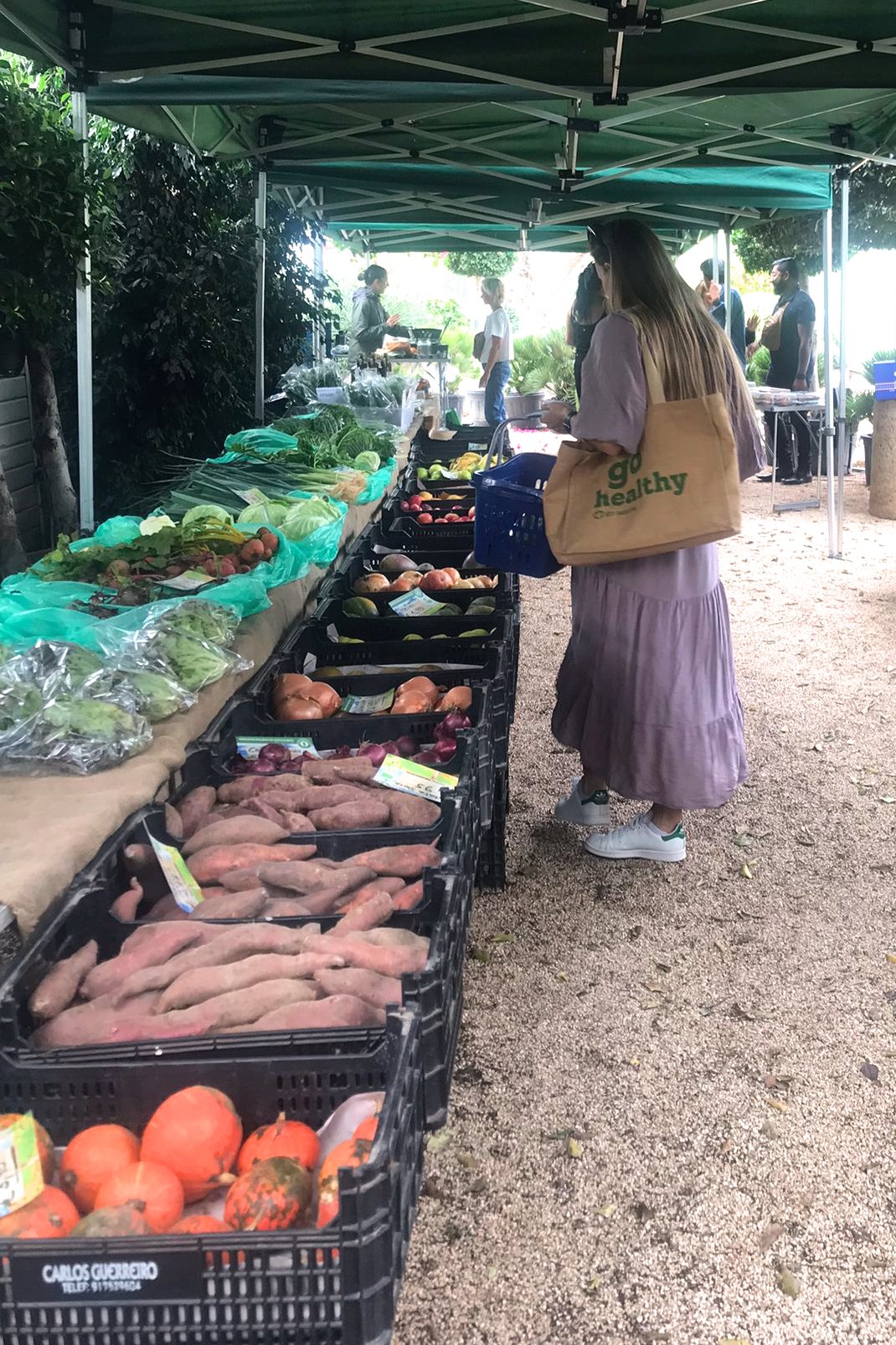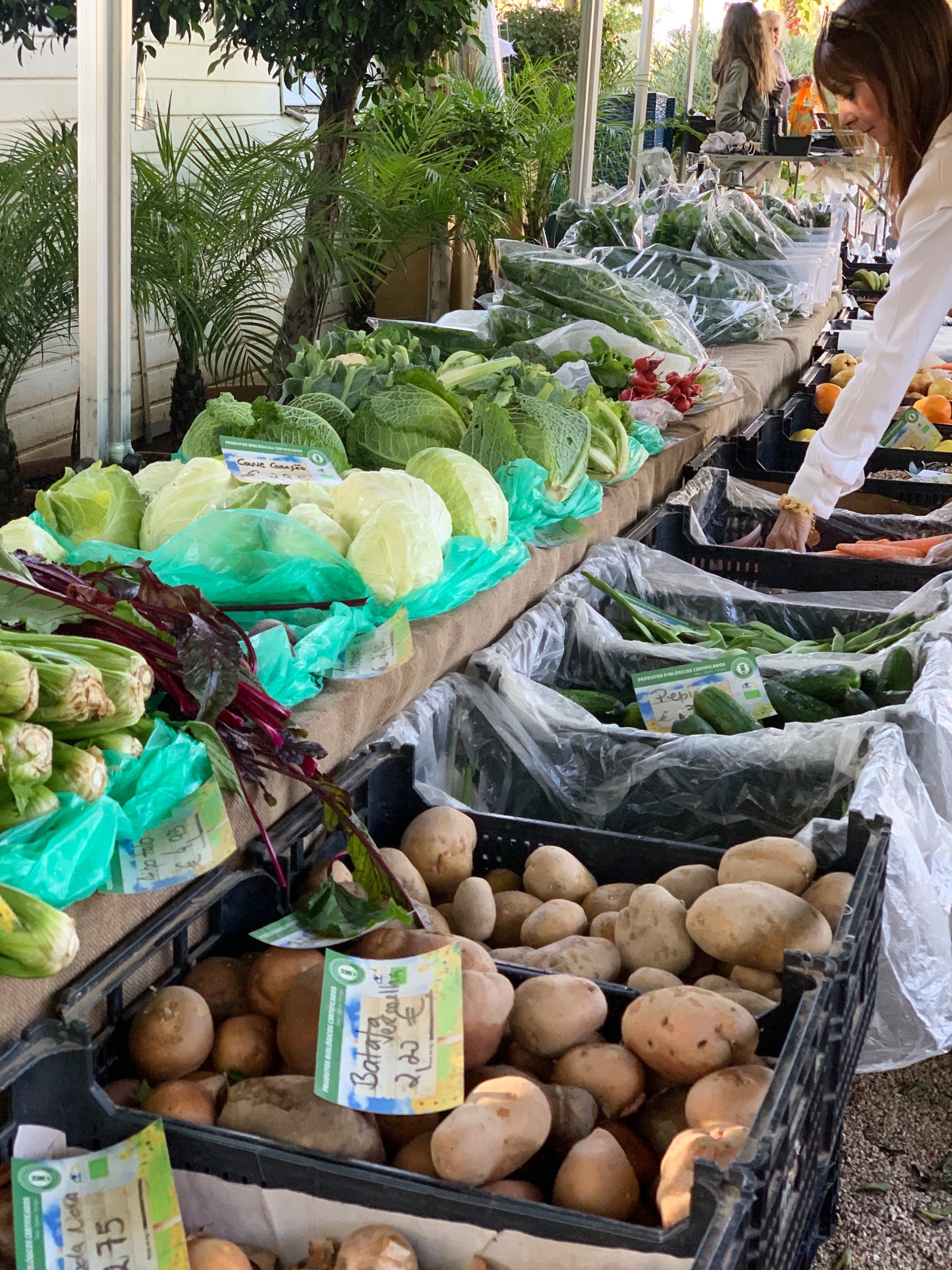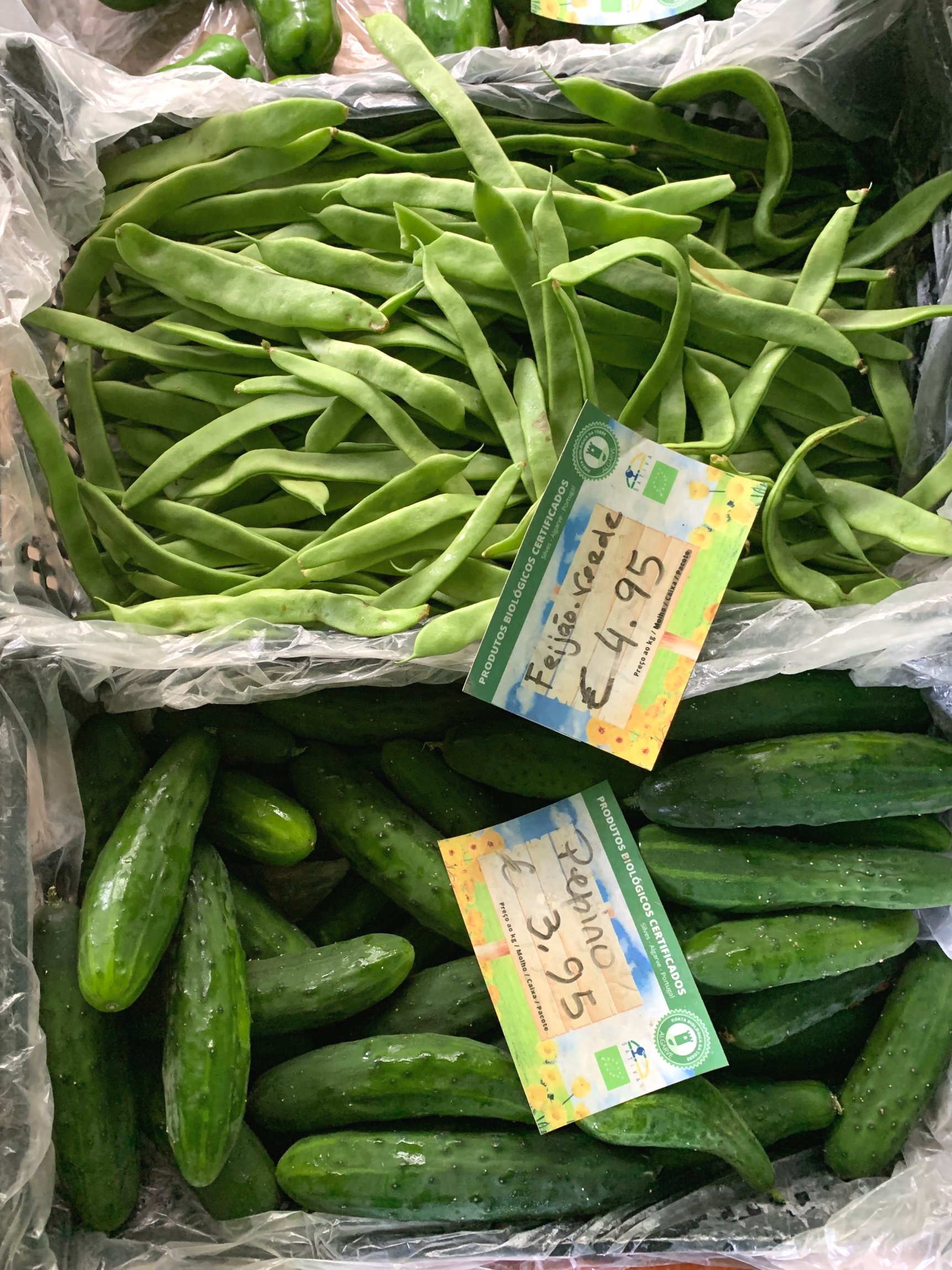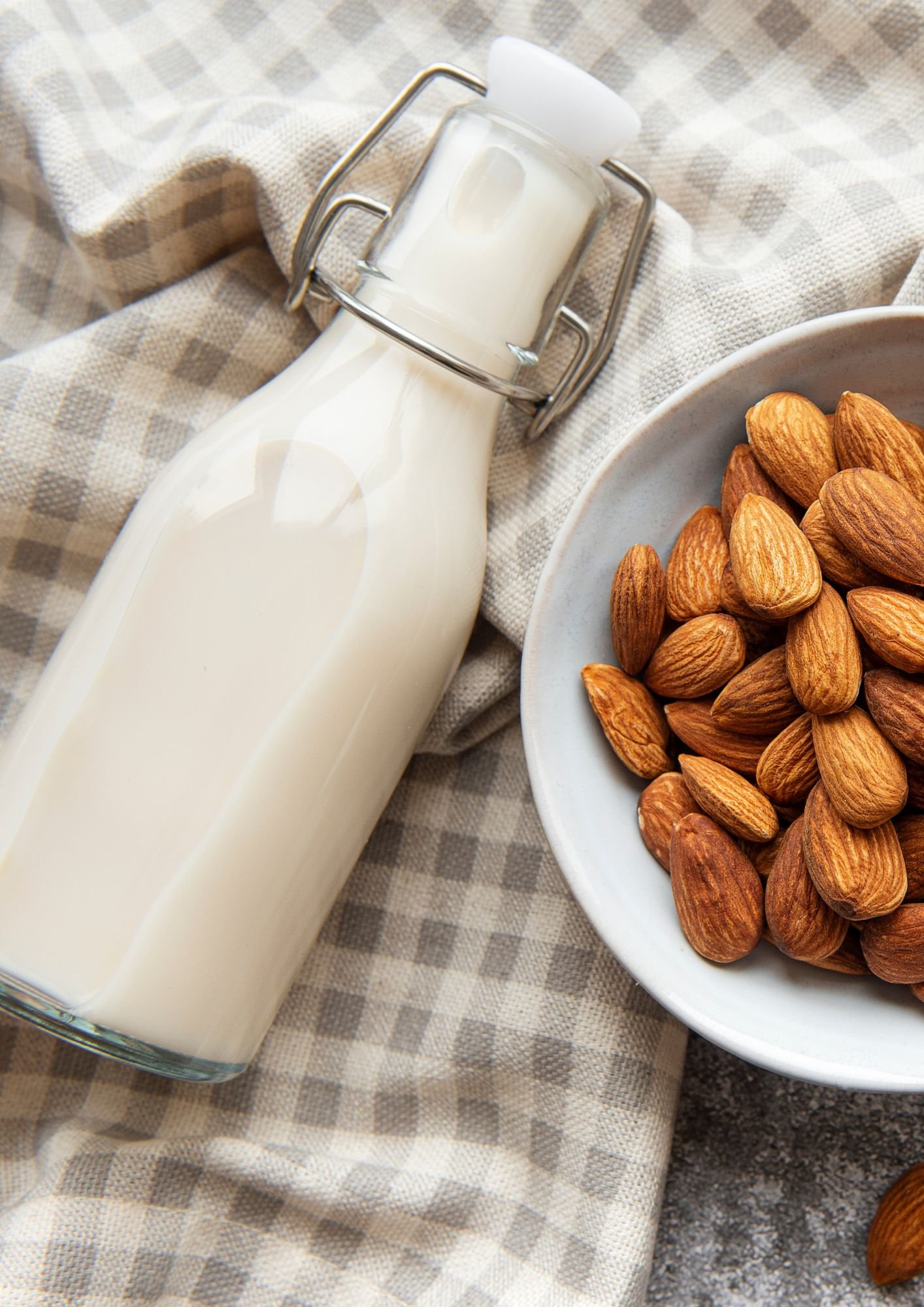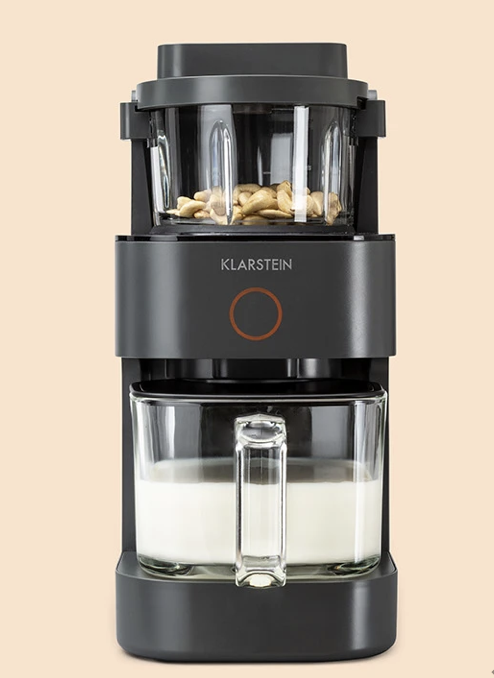Organic food is available in almost every supermarket today. However, I still prefer to buy my veggies and fruit at Farmer's Markets, where the produce is local, fresh, and much more sustainable.
For many years now, I try to only buy organic, locally-produced food, NOT in plastic packaging, which is usually the case with organic veggies and fruit, even when local, found in supermarkets. Organic because it's healthier, of course, and local because it's more sustainable as well as supportive of local producers. Plastic is self-explanatory. If the avocado had to fly from Brazil to get to me, plus it's packaged in plastic, I prefer to skip it. However, it's not always easy or convenient to do so, but it's also not impossible; it just takes a bit of planning.
The problem arises when you move a lot, as I do. I had a pretty good setup in Croatia, but when I moved to Portugal, it wasn't easy. So I rented a house on a large plot of land and started growing my own veggies. I started small and expanded the following year. I would do our monthly grocery shopping in a zero-waste shop in Lisbon. We composted and reduced our waste drastically. I was happy and proud of the sustainable life we built. And then everything changed - again. My partner received a job offer he couldn't refuse, and we had to pack up and leave in a matter of weeks. I took some tomato and pepper plants with us, but I had to leave my garden behind together with the life we created. We moved to the Algarve, south of Portugal, and it was, as always is, an adjustment. But, one of the most important things for me was finding a good place to go grocery shopping, and I am happy to have found an organic farmers market very close to home. I just wish I had found it sooner. It sells local veggies and fruits, including avocado, mango and lime, that grow in the Algarve due to the warm climate, so that's a big plus. It is set up only once a week, so I need to plan accordingly, but it's worth it. If you are in the Almancil area, you can check out the organic market every Wednesday in Quinta de Calma and every Thursday in Naturalgarve garden centre.
Why Organic?
My grandma had a beautiful garden and grew organic veggies. This means she never used synthetic fertilisers, pesticides, GMO seeds etc. When I once told her her veggies were organic, she said they are just veggies, as they always were. Nothing special about them, she said laughing, no need for a new, fancy name; the other kind should have a different name. Ain't this the truth? My grandma is a wise woman. Imagine if instead of having to choose between "fruit and veggies" and "organic fruit and veggies" in the supermarket, you would have a choice of "fruit and veggies" and "toxic fruit and veggies". I wonder what would most people choose if the wording was different and people were made more aware of what they are buying.
If you think I am exaggerating, read on. According to the EPA (American Environmental Protection Agency), pesticides used in conventional farming can impact the nervous system, irritate the eyes and skin, interfere with the body's hormonal systems, and cause cancer. And if you believe that these things must be regulated by government agencies, how about this - it took 15 years of effort by environmental groups to ban Chlorpyrifos, a dangerous pesticide often used on nut and fruit trees as well as veggies such as broccoli and cauliflower, to be banned in the US (banned in 2022) and the EU (banned in 2020). I wonder how many others are still out there, not as dangerous perhaps, but still poisoning our food. At the end of this text you can find an interesting video concerning citrus fruits.
The dirty dozen and the clean fifteen
The Environmental Working Group (EWG) annually publishes a Shopper's Guide to Pesticides in Produce together with their dirty dozen and the clean fifteen list. The dirty dozen is a list of fruit and veggies containing the most harmful pesticides, while the clean fifteen the least. If you can't afford to buy only organic, this is a good list to have. Strawberries are almost always at the top of the list. I dislike strawberries and thought I was allergic to them since I had an allergic reaction when I was a kid. Turns out I am not. The reaction was possibly caused by the pesticides.
(Illustration source: EWG)



